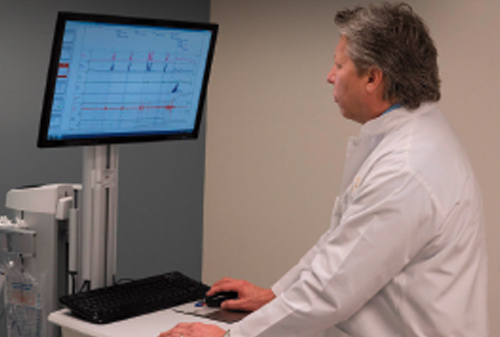By Chris Pearson
 Some of the most common medical disorders treated by renowned female pelvic medicine specialist Dr. Jaime L. Sepulveda, founder of Miami Urogynecology Center in South Miami, are injuries caused during childbirth. The good news is that most women do not suffer injury and those who do report improvement within six months after delivery.
Some of the most common medical disorders treated by renowned female pelvic medicine specialist Dr. Jaime L. Sepulveda, founder of Miami Urogynecology Center in South Miami, are injuries caused during childbirth. The good news is that most women do not suffer injury and those who do report improvement within six months after delivery.
Dr. Sepulveda is one of the country’s foremost experts in the field of female pelvic disorders and aesthetic vaginal surgery and is a frequent presenter on the subject at international conferences for physicians training to become specialists in the field.
“Childbirth, whether through natural or operative delivery, which is when instruments are used, can result in injuries that can be very debilitating to the mother,” says Dr. Sepulveda.
“About 20 percent of women who deliver vaginally may experience prolapse, urinary or fecal incontinence. One well-established fact is that when forceps or vacuum suction is used, the risk of injury to the pelvic floor is increased. Every obstetrician knows this and only selects operative delivery when there is a benefit to the well-being of mother and baby.”
According to numerous medical studies, vaginal delivery is still the safest way to deliver for mother and child. Even so, because there is pressure placed on the pelvic floor during delivery, natural childbirth can result in pelvic organ prolapse, the symptoms of which can include pressure or fullness in the pelvic area and the feeling of a bulge coming though the vagina.
Other women delivering naturally may experience complications such as urinary or fecal incontinence following childbirth, while those who undergo episiotomies during delivery can have wound-healing complications and subsequently suffer from pain during intercourse.
In addition, there are those who have anatomic defects known as fistula, which are abnormal connections between the bladder and vagina or between the rectum and the vagina. These can be detected by the obstetrician using sonography. Any of these conditions can be life-changing for a new mother, and her obstetrician will refer her to a urogynecology specialist such as Dr. Sepulveda for treatment.
Once diagnosed, there are a number of medical options available ranging from behavior modification, pelvic floor muscle retraining exercises, prosthetic devices and transvaginal and laparoscopic surgical procedures.
“Our office is a place to the care of pelvic floor that is dedicated exclusively disorders,” he says. “A woman who becomes a mother continues to be a woman and wants to feel healthy and engage in intimacy. Being continent and feeling good are important parts of being healthy.”
“There is a misconception that women can prevent injuries to the pelvic floor by doing cesarean sections, but this is not supported by data in terms of benefits to the woman,” adds Dr. Sepulveda. “We do know that to prevent one case of urinary incontinence or birth injury, we would have to do seven C-sections. But six of those might be unnecessary, possibly leading to other complications that can arise from any surgery.”
In fact, according to a 2006 medical study published by the American College of Obstetricians and Gynecologists, “the role of elective cesarean delivery in reducing the risk of pelvic floor disorders is being debated in both the medical and the lay communities.”
“Needless to say, any of complications arising from childbirth can be extremely hard for a woman to face. They have had a pregnancy. They have had a delivery, and now they could have actual injuries to themselves due to a natural process.”
One thing is certain: the miracle of childbirth will continue to occur in rising numbers, here in South Florida and around the globe. When complications arise, whether due to natural or operative deliveries, Dr. Sepulveda and his expert team of compassionate doctors and nurses are ready to restore each new mother into the healthy, happy woman she deserves to be.
 Dr. Sepulveda practices at Miami Urogynecology Center, located at 6200 Sunset Drive, Suite 504, in South Miami. For more information, visit www.miamiurogynecologycenter.com or call 305-669-6267.
Dr. Sepulveda practices at Miami Urogynecology Center, located at 6200 Sunset Drive, Suite 504, in South Miami. For more information, visit www.miamiurogynecologycenter.com or call 305-669-6267.



